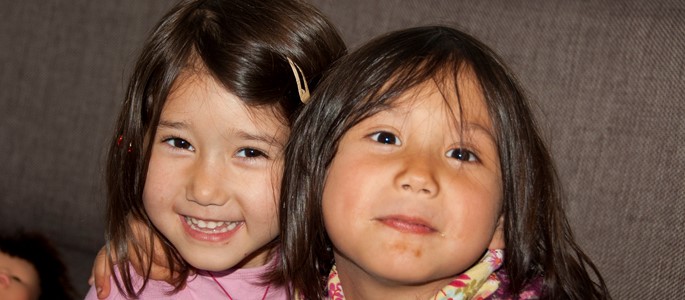Refugee children will suffer from two new law proposals
The government's new anti-gang package to be financed by making refugee children even poorer
FACTS
According to the government's financial committee (in Danish) 21,800 children are in 2017 under the integration allowance. In 2018, 23,100 children can be hit by the new earning principle.
Law proposal on anti-gang package and earning principle for child support (in Danish)
New pension deal between the government and Danish People's Party (in Danish)
Refugees have a harder time finding a job in Denmark than the natives, and it seems that their children must be punished for that. As it is, unemployed refugees receive during their first 7 years in the country only half of what a Dane gets on welfare benefits (the special 'integration allowance'). As a parent supporting a child you will get almost twice as much as a single person, but the amount is the same for one as for ten children.
At the same time, refugee families only earn the full right to the additional child support (børnecheck) after 2 years in the country. This will be raised to 6 years and thereby pay the 90 mio kr. which the government, supported by Social Democrats and Danish People's Party, will spend on fighting gangs.
Another proposal about a new pension deal will be financed by cutting down the integration allowance by 3 percent, and also changing the bonus which can be achieved by passing the final exam of Dansk 2 language test, from a monthly supplement of 1,500 kr to a once-for-all bonus of 6,000 kr.
All in all, refugee children are affected unreasonably hard by all these things, and they already form the poorest group of children in the country. Having arrived recently, their parents must first learn Danish, and even when that has been achieved, they are still at the back of the line for jobs. They lack network, recommendations and relevant experience – and some have traumatic experiences with them. Therefore they are also hit by the 225-hour rule, and more of them are working part time involuntarily.
The background for all these cut downs is a stronger incitement to find a job. But research shows a very limited effect – lately the Danish Council for Socially Exposed proved in March 2017 that the labour effect of the old ceiling over welfare benefits was next to nothing, and even to some extent negative (link to Danish text).
Children growing up in poverty have a bigger risk of becoming socially ostracized and entering criminal environments. Hence the cutting down of the child support will on a longer term actually contribute to the very gang problems that the government wants to fight.
Furthermore, both Inger Støjberg (V) and Trine Bramsen (S) have expressed a wish for a future use of collective, economic sanctions for the whole family as part of the new anti-gang package – something which will also hit siblings to the gang member and create more poverty.
The Social Democrats used to be against the former 'start help', which they called "a poverty allowance" and abolished at the change of government in 2011. Since then, S has changed their mind and is now supporting the integration allowance which the Løkke government introduced in two steps 2015 and 2016. As late as in 2015 Social Democrats voted against the 2-year earning principle for child support, but will now vote for a principle which is three times harder.
"Refugees must contribute to society, but we also have to make sure that children do not grow up in poverty", said Dan Jørgensen (S) in 2015 in the parliament.
The government had in its 2025-plan the idea of abolishing child support for more than 3 children. This has, however not been introduced yet. If it was introduced it would hit refugee- and migrant families hard, as they more often have more than 3 children compared to Danish families.
In January, 17 Danish organisations signed an appeal to the Parliament to fight poverty among children, which has been growing dramatically because of the ceiling over welfare benefits, integration allowance and the 225-hour rule (link to Danish text).
Do you want us to produce more news about refugees in Denmark?
Donate or become a member!


